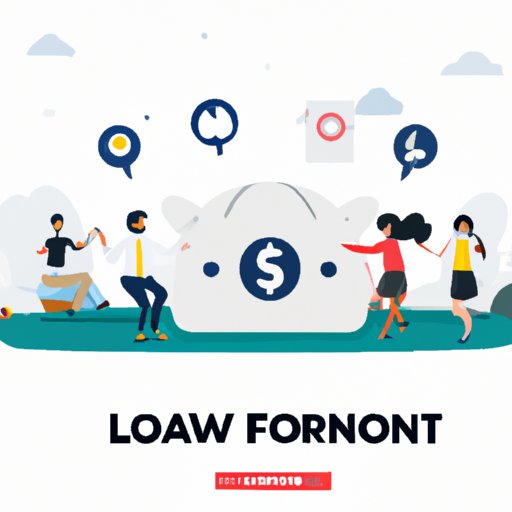Introduction
Starting a small business can be an exciting but daunting prospect. One of the biggest challenges entrepreneurs face is figuring out how to finance their business. This article explores the various options available and provides advice on how to make the best decision for your business.
Apply for a Small Business Loan
Applying for a small business loan is one of the most popular ways to finance a small business. Banks and other financial institutions offer a variety of loan products that are tailored to meet the needs of small businesses. In order to qualify for a loan, you must meet certain eligibility requirements, such as having a good credit score and a solid business plan. There are several types of small business loans available, including term loans, lines of credit, and SBA loans. Each type has its own advantages and disadvantages, so it’s important to research the different options before deciding which one is right for you.
Utilize Crowdfunding Platforms
Crowdfunding is an increasingly popular way to fund a small business. It involves raising money from a large number of people, usually through online platforms. Popular crowdfunding platforms include Kickstarter, Indiegogo, and GoFundMe. The benefits of crowdfunding include access to a larger pool of potential investors, no requirement to give away equity in your business, and the ability to test the market for your product or service before launching. However, there are some risks associated with crowdfunding such as not reaching your goal, legal issues, and lack of control over the funds raised.

Ask Family and Friends for Help
Another option for financing your small business is to ask family and friends for help. This can be a great way to get the capital you need without taking on debt or giving away equity in your business. However, it’s important to set ground rules beforehand to ensure that everyone is on the same page and that expectations are clear. It’s also important to remember that asking for help from family and friends can put strain on relationships, so it’s important to weigh the pros and cons carefully before deciding to take this route.

Take Out a Personal Loan
Taking out a personal loan can be a viable option for funding your small business. Personal loans are generally easier to obtain than business loans, and they typically have lower interest rates. In order to qualify for a personal loan, you generally need to have a good credit score and a steady source of income. There are several types of personal loans available, including secured and unsecured loans, fixed-rate and variable-rate loans, and short-term and long-term loans. Each type has its own advantages and disadvantages, so it’s important to research the different options before deciding which one is right for you.

Consider Grants and Tax Incentives
Grants and tax incentives are another option for financing your small business. Grants are funds that are awarded by the government or private organizations to help fund businesses. Tax incentives are reductions in taxes that are available to businesses that meet certain criteria. Grants and tax incentives can be a great way to get the funding you need without taking on debt or giving away equity in your business. However, it can be difficult to find grants and tax incentives, so it’s important to do your research and read the fine print before applying.
Use Credit Cards to Fund Your Business
Using credit cards to fund your small business can be a viable option if used responsibly. Credit cards can provide quick access to funds, and many cards offer rewards and cash back for purchases. However, it’s important to use credit cards responsibly and pay off balances in full each month to avoid costly interest charges. Additionally, it’s important to keep track of spending to ensure that you don’t overspend or become overwhelmed by debt.
Look Into Invoice Factoring
Invoice factoring is another option for financing your small business. Invoice factoring involves selling unpaid invoices to a third party at a discounted rate in exchange for immediate payment. This can be a great way to access funds quickly, as the payment is typically received within 24 hours. However, it’s important to shop around to find the best deal, as fees and interest rates can vary significantly between companies. Additionally, it’s important to read the fine print and understand the terms and conditions before signing a contract.
Conclusion
Financing your small business can be a challenging but rewarding process. There are a variety of options available, including small business loans, crowdfunding, family and friends, personal loans, grants, tax incentives, credit cards, and invoice factoring. Ultimately, the best option for your business will depend on your individual circumstances and needs. With careful consideration and research, you’ll be able to find the perfect financing solution for your small business.
(Note: Is this article not meeting your expectations? Do you have knowledge or insights to share? Unlock new opportunities and expand your reach by joining our authors team. Click Registration to join us and share your expertise with our readers.)
